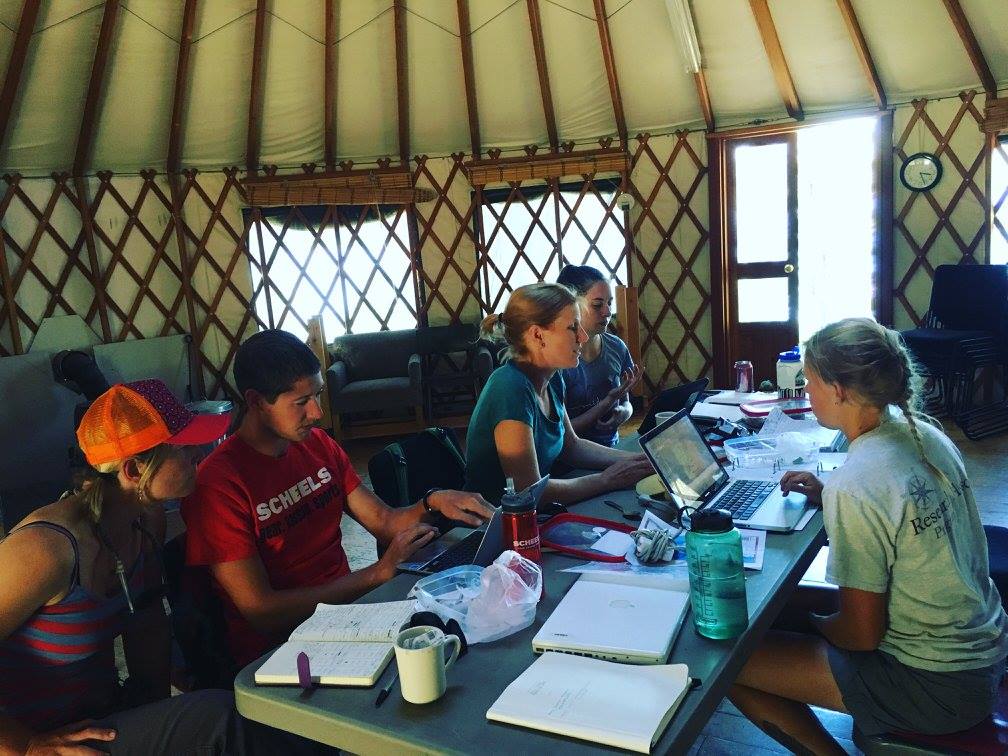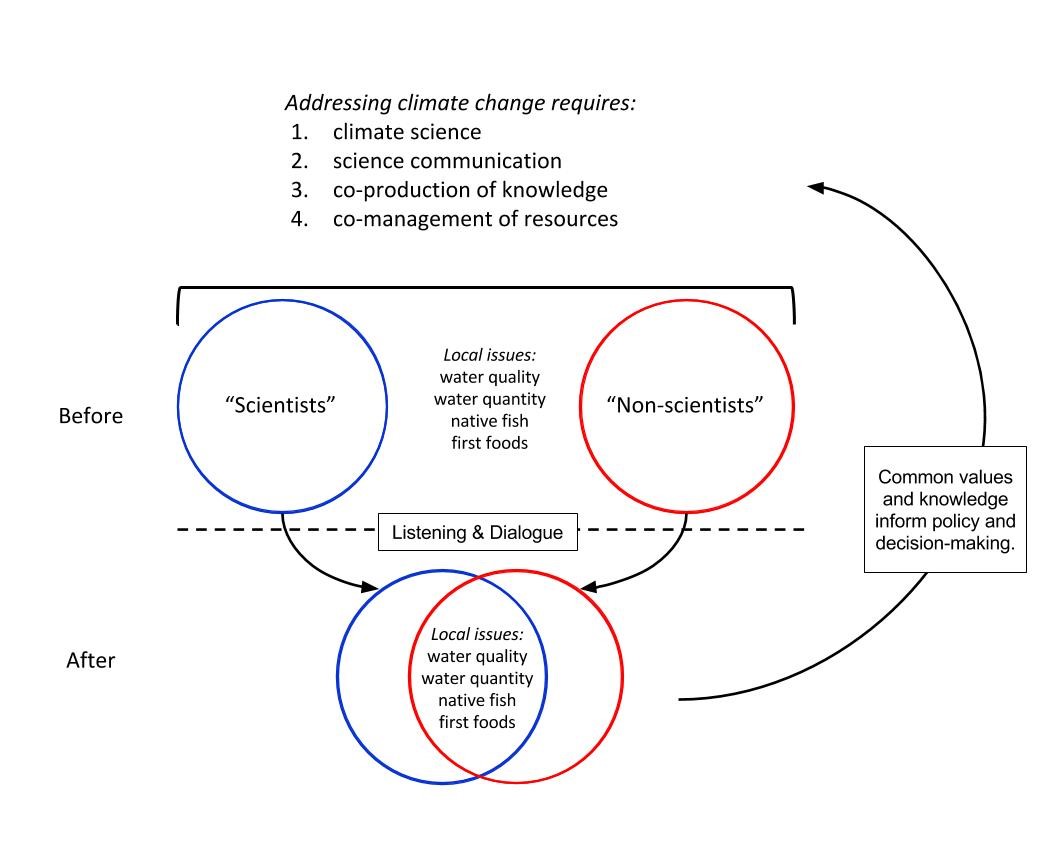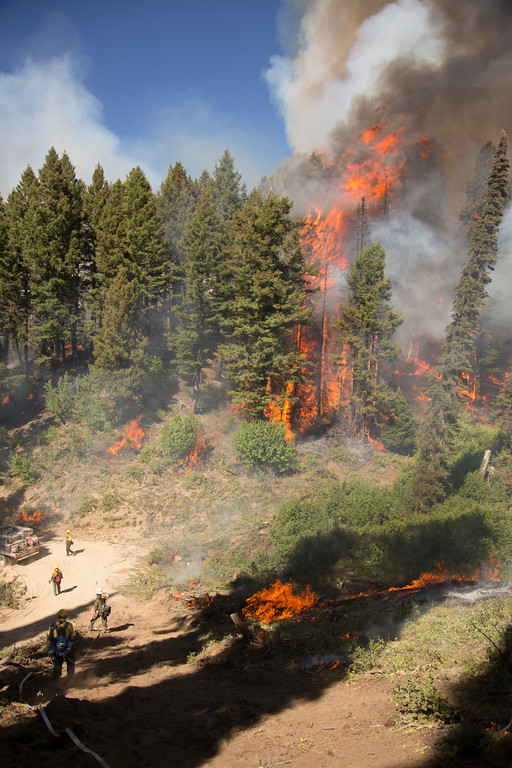10 April 2017
Listening: The other half of science communication
Posted by Shane Hanlon
By Cailtin Rushlow

Graduate students at the McCall Outdoor Science School work together to prepare presentations inside the classroom yurt. Photo credit – Mary Lugg
As scientists, it’s easy to forget that sharing science isn’t solely about crafting a compelling message, it’s about building relationships. We often hear the advice, “know your audience,” but this assumes that: (1) we’re the “experts” and (2) the “audience” wants to listen to our messaging. First, the expert/non-expert dichotomy might not sit well with you or the people you’re talking to. Second, the bigger challenge is often bringing people into the conversation. How do we, as scientists, enter into a dialogue with people in our communities about divisive, value-based issues?
My peers and I suspected that listening might be an underappreciated part of science communication, and decided to emphasize it in graduate student training at the McCall Outdoor Science School. In one challenging exercise, we asked students to leave campus and have a conversation with someone in town about climate change. Many balked at the idea. This was rural Idaho; who’s going to talk to someone in their 20’s about climate change? What if they get mad at us? How do you even start a conversation with a stranger? We just asked them to try, and to focus on listening, not delivering information.

Scientists can work with non-scientists to tackle global challenges like climate change when they take the time to listen and build relationships over local issues. Here, examples from central Idaho.
The next day we convened in the classroom to share the stories of the people in town. Students were told stories about snow that fell up to the eaves, Increasingly intense fires across a longer fire season, a motel that didn’t have AC and stood empty during a heat wave, and even a pilot who watched the landscape change beneath him over a fifty-year period. Many students had listened to the stories of strangers for h ours. It wasn’t hard to connect and find common values, even if people were skeptical of climate change. At the end of the day, every student returned with a fresh perspective from simply striking up a conversation with a stranger. While opinions on climate change varied widely, students learned that they could build trust and discuss this divisive issue when they listened first.

Firefighters battle the Pioneer Fire in August 2016. The wildfire started mid-July and lasted for over four months, going on to burn more than 188,000 acres in central Idaho, with 1,800 firefighters on duty at the fire’s peak. Photo credit – Kari Greer
A lot has changed since that class last spring. But one thing hasn’t: we all want our voices to be heard. Listening is more important than ever as our society becomes more and more polarized. Making tough choices means weighing our collecting understanding of the situation and our values. Science is one part of the understanding, but it’s by listening that we reinforce our shared values.
Talk to strangers. Find common ground. Share the science. But start by listening.
-Caitlin Rushlow is a PhD Candidate studying Arctic hillslope hydrology in the Geosciences Department at Idaho State University, and she recently completed a year-long Fellowship in Climate Science Communication through the USGS Northwest Climate Science Center and the McCall Outdoor Science School. Caitlin can be reached at [email protected].










 The Plainspoken Scientist is the science communication blog of AGU’s Sharing Science program. With this blog, we wish to showcase creative and effective science communication via multiple mediums and modes.
The Plainspoken Scientist is the science communication blog of AGU’s Sharing Science program. With this blog, we wish to showcase creative and effective science communication via multiple mediums and modes.